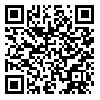BibTeX | RIS | EndNote | Medlars | ProCite | Reference Manager | RefWorks
Send citation to:
URL: http://journal.nkums.ac.ir/article-1-56-en.html
Abstract Background & Objectives: The frequent Comorbidity of depression disorder and substance use disorders (SUD) is well-documented. Metacognitive therapy is designed as a treatment to influence cognitive-attention syndrome, metacognitive processes, knowledge of its stimulating and action on the cognitive subsystem. The aim of present study was to investigate effect of metacognitive therapy on depressed addicts on methadone Maintenance treatment in Mashhad. Methods and materials: Of the 75 addicts receiving methadone the sample was included 24 participants who were assigned by random sampling in experimental (N=12) and control group (N=12). Addicts were completed Beck Depression short Inventory (BDI-13) in the pre-test, post-test. Data were analyzed by the SPSS 16 and presented with covariance (ANCOVA) test .Alpha level less than .05 was considered significance ( p<0.05). Findings: analysis of ANCOVA showed that there are significant differences between experimental and control group based on depression (f=184.8, p<0.001) in post-test stage. Conclusion results suggest that metacognitive therapy could be a short and effective treatment. Thus the thoughts and feelings without judgment and evaluation are done with the help of mental imagery. Additionally it is consistent with a detached mindfulness conceptualization of problematic abuse behavior and further add to our understanding of the role of specific metacognitions and mindfulness across the continuum of Abuse behavior and mood disorders.
Received: 2014/12/31 | Accepted: 2014/12/31 | Published: 2014/12/31
| Rights and permissions | |
 |
This work is licensed under a Creative Commons Attribution-NonCommercial 4.0 International License. |





